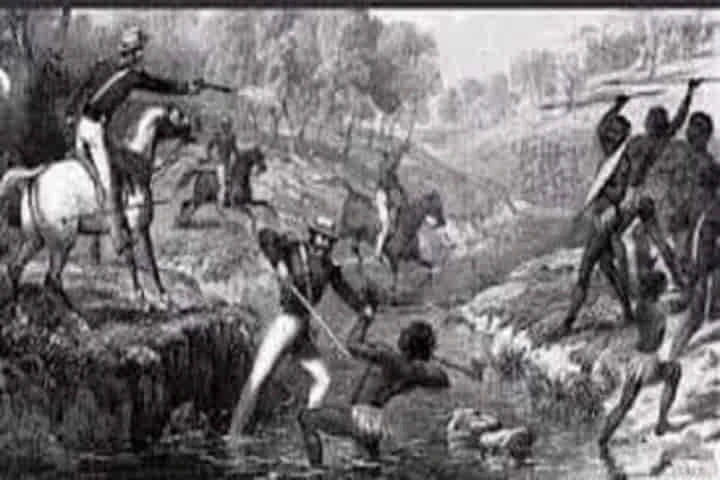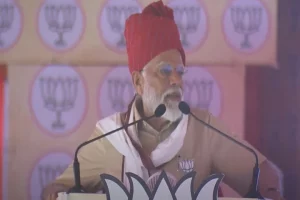A team led by Tarun Vijay, Chairman of National Monuments Authority, met the Minister of State for Culture Arjun Ram Meghwal and submitted a report to declare Mangarh hillock located in Rajasthan as a monument of national importance in the year of Azadi Ka Amrit Mahotsav.
The team met the Minister at New Delhi’s Indira Gandhi National Centre for Arts.
Talking to the media, Meghwal said the Mangarh hillock where 1,500 Bhil tribal freedom fighters had been massacred by the British on November 17, 1913, had not received the importance it deserves. In order to pay tribute to these martyrs, the Ministry will positively consider the report.
The Mangarh massacre took place six years before the Jallianwala Bagh incident in 1919. Facing harassment under the old feudal structure and then subsequently under British rule, the Bhils – a tribal community – came together under the social reform movement, the Bhagat Movement started in 1908 by Govind Giri.

Born in a Banjara or a gypsy family in Dungarpur, Rajasthan, Giri’s movement propagated among the Bhils vegetarianism, abstinence from alcohol, rejection of bonded labour and fighting for their rights. This led to a growing awareness and the Bhils started demanding fair wages for their labour from princely rulers of Dungarpur, Banswara and Santrampur and the British.
In October 1913, Giri and Bhils numbering one and a half lakh gathered at Mangarh and on November 13 a large havan was conducted. It was rumoured that a large-scale revolt against the princely States was being planned and so the worried rulers turned to the British. Commanded by Colonel Sherton, the combined forces of Banswara, Dungarpur and Santrampur and Bhil Corps of Mewar State armed with machine guns and artillery surrounded the hill from all sides.
The Bhils were asked to surrender and when they refused, the British-led forces fired at them killing 1,500 people. The remaining Bhils along with Giri were arrested and tried for waging war. Released in 1919, Giri died in 1931 in Gujarat.




















